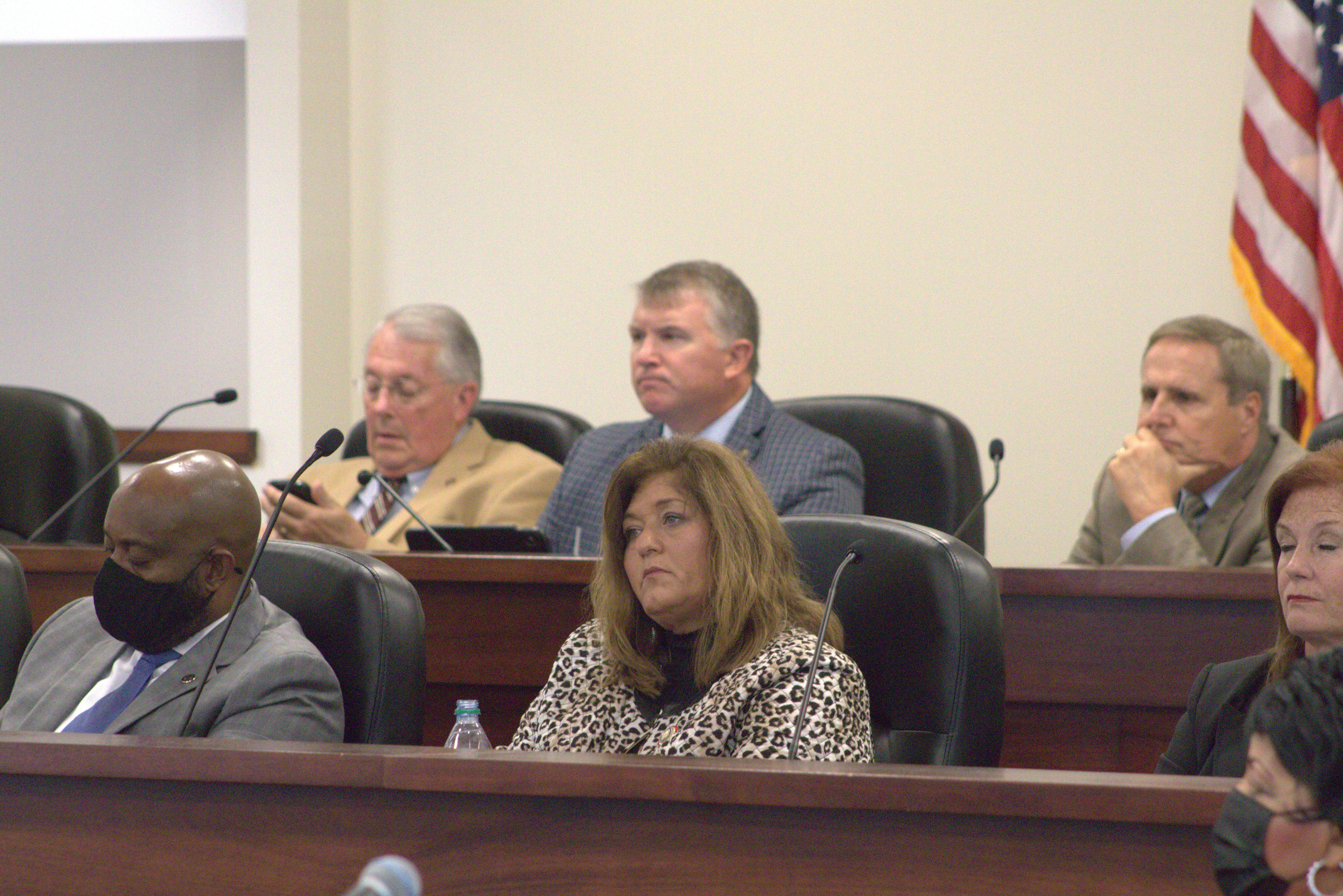Alabama Superintendent of Education Dr. Eric Mackey addressed legislators who serve on the budget committees on the state of education in the state.
Mackey said that the motto of the State Department of Education (ALSDE) is: Help every child get every chance every day to have a great life.
Mackey said that when ALSDE considers whether to adopt a new program or text they consider three fundamental things:
Will it help our students become better readers?
Will it help our students be better prepared for success in algebra?
Will it help our students become a more productive, responsible citizen and have a successful life?
“Some 77% of our third graders are reading on grade level,” Mackey said. “That means 23% are not reading on grade level.”
Mackey said that is a problem because studies show that students who have not mastered reading by the start of fourth grade tend to fall further behind and have less successful educational outcomes. For this reason, ALSDE is working on raising more competent readers.
“Our initial goal is to cut that in half to get it down to just 12%,” Mackey said. “20% are going to struggle to learn to read. About half of that can learn to read if we have the right presentation. We know that 12% take more intensive efforts to learn to read.
“In 2021, the State Board has completely redone and addressed the standards for teaching reading. We made sure that all of the science of reading was addressed in all of our standards.”
The National Assessment of Educational Progress (NAEP) is a test which the U.S. Department of Education bills as "The Nation's Report Card."
In 2019, Alabama’s fourth-graders were 49th in Reading and 52nd in Math. Alabama eighth-graders were similarly behind most of their peers.
Mackey said that the state’s “standards are now aligned with the NAEP. We have done the standards, we have done the alignment, [and] now we are working on training the teachers."
Mackey said that schools are having trouble in recruiting highly effective educators as well as retaining those teachers.
“Life on teachers has been hard during the pandemic,” Mackey said. “We have a teacher shortage. We are going to make it easier for people to teach in Alabama. We are balancing that with not lowering the bar for quality.
“We are trying to recruit more people out of industry. They may know their subject matter, but if you get in a classroom with 14 and 15 years olds, it is a lot more difficult than working in a lab.”
Mackey said that the ALSDE is working on getting those new teachers the support they need.
Mackey said that the ALSDE has developed a strategic plan. ALSDE has spent $18 million in federal money to train teachers in the LETRS (Language Essentials for Teachers of Reading and Spelling) program, established a coaching model for teachers in 2021, and are purchasing textbooks that are NAEP-aligned.
Mackey said that it is the goal of the new math instruction - to teach students “To learn to think algebraically.”
“Algebra is really about balancing fractions,” Mackey said. “Once you can balance numbers you can turn them into fractions. This is the first year that we have had NAEP aligned textbooks.
“We now have 8,312 teachers trained in NUMBERS, OGAP (the OnGoing Assessment Program), and other AMSTI (Alabama Math, Science, and Technology Initiative) courses."
Mackey said that he wants to get math coaches in all the schools.
“In 2022, we would like to slowly adopt a math coaching model,” Mackey said, adding that the state is using “a six-year model because right now we don’t have the math coaches in the pipeline.
“High dosage tutoring is the only way we are going to make up the lost ground that we have had," Mackey said of the challenges that schools face in getting students caught up from the remote learning of the pandemic.
“We are asking our students to do more,” Mackey said.
Mackey said that the NAEP and the American College Testing (ACT) are now asking students to do multistep process problems.
“We want new tests to be designed like the NAEP,” Mackey said. “We have to raise our expectations.”
Kirk Fulford is the Deputy Director of the Legislative Services Agency and heads its fiscal division.
Fulford said that the 2022 Education Trust Fund budget (ETF), which began on Oct. 1, was a record $7,672,576,575.
The state spent a record $5,255,917,289 on its K-12 schools, $1,957,095,794 on higher education, and $459,563,492 on other agencies funded in the ETF.
Later that evening, Alabama Gov. Kay Ivey (R) requested a record $8,299,759,929 ETF budget. That request is $627,183,354 more than in the 2022 ETF budget - an 8.17% increase. Article | 1819 News
Fulford warned that the record revenues that the state is presently receiving are due to an influx of federal COVID-19 relief dollars and that these record revenues are not sustainable once the federal money runs out.
The Legislature is currently in a special session to appropriate American Rescue Act funds. When they complete that, they will return to regular session business. Day 4 of the Alabama Regular Legislative Session will be on Tuesday, Feb. 1.
To connect with the author of this story, or to comment, email brandon.moseley@1819News.com.










